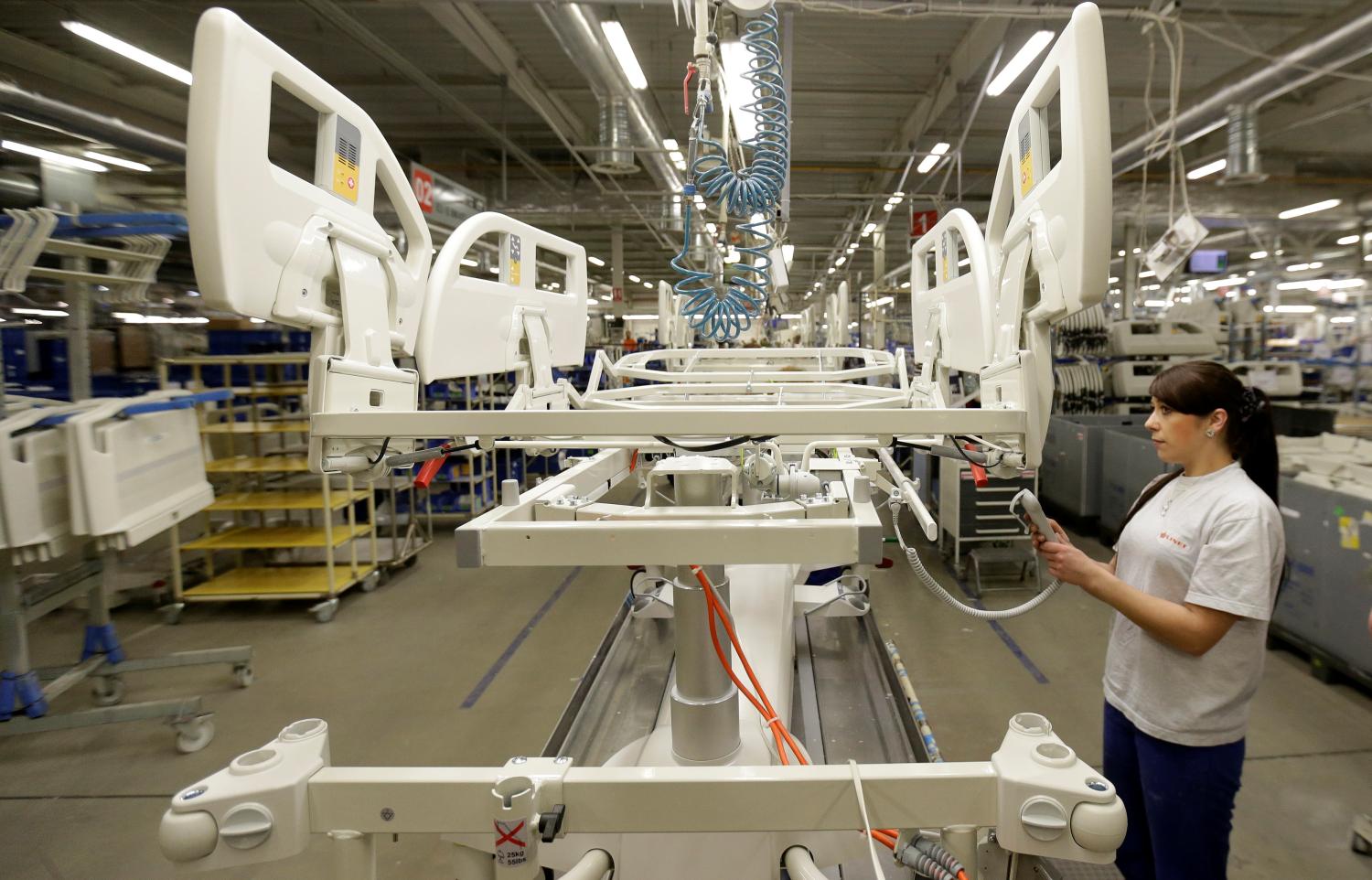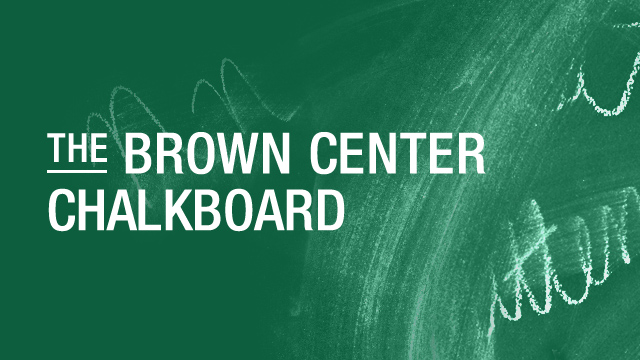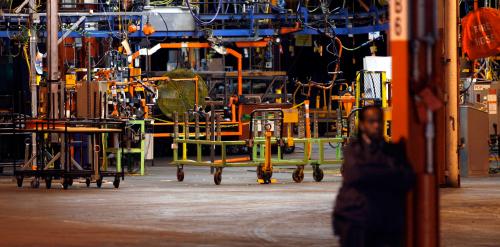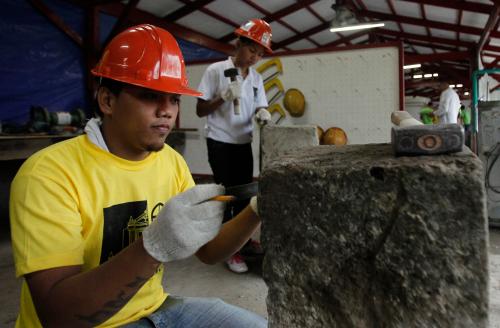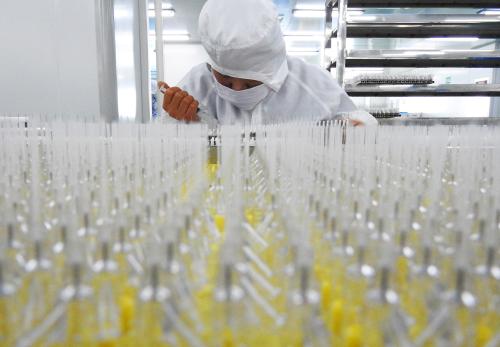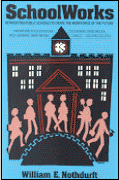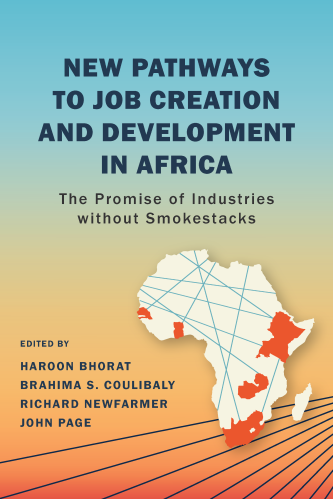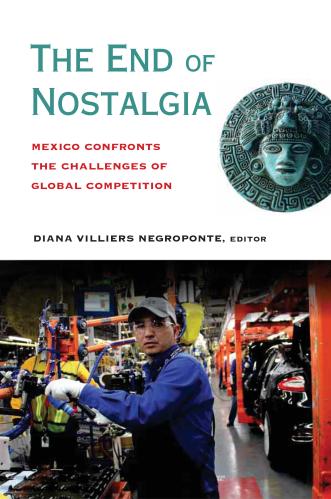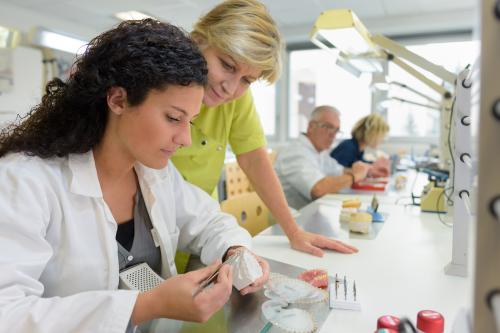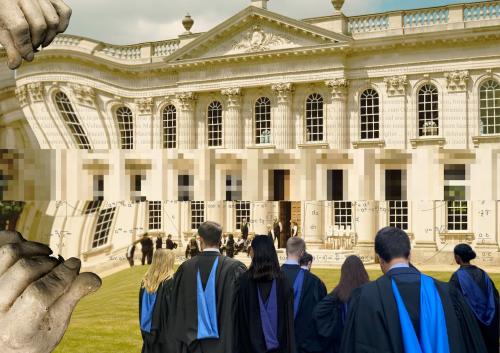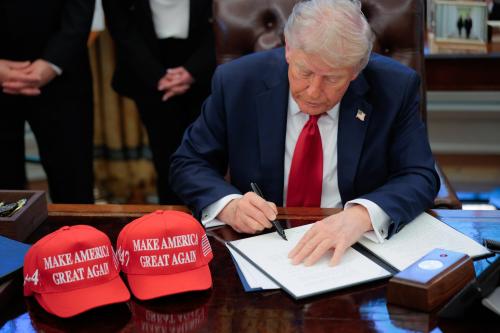“Every manufacturing facility I’ve ever visited says, ‘I have jobs available. I can’t find people to fill the position with the skills necessary,’” said Congressman David Cicilline (D-R.I.) at a recent Brookings event focused on preparing the next generation of manufacturers through community college. Congressman Cicilline delivered his remarks during the first of the day’s three panel discussions, The Future of Workforce Development, which serves as the subject of this post. The day’s other panel discussions will be summarized in future Chalkboard posts.
A diverse and distinguished panel of experts joined Brookings Vice President Darrell West to discuss the future of the manufacturing labor force development. Despite their varying backgrounds and specific areas of expertise, the panelists often echoed one another in identifying priority policies and practices that should guide the future of workforce development, training, and education in the United States.
Community colleges: doing the “heavy lifting of higher education”
All three panel participants clearly agreed on the vital role community colleges play in preparing the American workforce for the estimated two million manufacturing jobs that are going to be hard to fill over the next decade due to a skills gap.
“Community colleges are potentially the most transformative institution in contemporary America” declared Dr. DeRionne Pollard, president of Montgomery College. “Almost half of undergraduates in this country attend a community college,” she went on to say. “And the reality is, as our country becomes browner, older and less wealthy in many areas, community colleges are the driving force in connecting so many needs of the community with the resources that can help propel and drive not only workforce development but economic development.”
Congressman Cicilline agreed, stating, “I think community colleges are really the answer for how do we train this next generation of young people and retrain existing manufacturing workers to meet the demands in the work force today.”
As the Congressman explained, the needs of the manufacturing industry have changed dramatically in recent decades: “It used to be if your mom or dad worked at a manufacturing facility you could graduate from high school and basically go back to the same big factory where they worked and get a job and make a good living and support your family. That’s not the case today in most places. The requirements are for greater skills, in part because of automation; those big factories, big assembly lines don’t exist as much.”
Dr. Celeste Carter, lead program director of the Advanced Technological Education program at the National Science Foundation, focused on the importance of community colleges in promoting diversity in advanced manufacturing fields, stating, “Community colleges are the entryway for a huge number of students. Whoever walks through the door of your classroom is who you are going to serve. It’s a tremendous opportunity to reach a lot of the underrepresented populations in the science and technology and engineering math occupations.”
The power of pathways
While community colleges play a pivotal role in future workforce development, training and education do not occur in a vacuum within their walls. Carefully designed pathways into, and out of, community college programs are essential.
“We have to figure out how to recreate these pathways from the K-12 space into the college space,” said Dr. Pollard, who also raised the importance of creating career pathways for some often-overlooked members of society. “Those folks who are coming out of the prison system. How are we working with them? Because as our former Governor here in Maryland said, we need everybody to work. And we need everybody to come out and contribute to the bottom line. How do make sure that we are looking at the access points, the pathways into this work?”
According to Dr. Carter, the federal government has also placed an emphasis on the importance of well-defined pathways. Describing the National Science Foundation’s Advanced Technological Education program, she said: “We make anywhere from 50 to 75 awards a year. They’re going to not just community and technical colleges, although they have leadership roles on all projects, but also through grades seventh through twelve. So the idea of pathways is very important.” NSF doesn’t just value educational pathways that end with the obtainment of a degree or certificate, however. Pathways into the workforce are just as essential, which is why, as Dr. Carter explained, every award that’s made has to have significant industry collaborators or partners.
Need for a New Narrative
Panelists also agreed that community colleges and manufacturing industry stakeholders need to rethink how they talk about manufacturing jobs and training. “Manufacturing in a lot of ways actually needs a branding campaign,” stated Dr. Pollard in her opening remarks. “We need to figure out how to look at the language … How do we talk about manufacturing in a way that has relevancy to an 18-year-old and a 48-year-old who have very different constructs about what manufacturing is?”
“Part of this is changing the narrative about manufacturing,” agreed Congressman Cicilline. “People used to think manufacturing is dirty, it’s a dead end, factories are closing, it didn’t seem like a bright future. There’s been a real change in the attitude about making things in this country … When some kid comes home and says I really want to go into manufacturing mom and dad most parents say, ‘really?’ And I think we really need to change that. Both in high schools and technical academies we should have manufacturing tracts so that young people are starting to develop the skills that they need.”
You can watch the entire discussion here.
The Brookings Institution is committed to quality, independence, and impact.
We are supported by a diverse array of funders. In line with our values and policies, each Brookings publication represents the sole views of its author(s).

